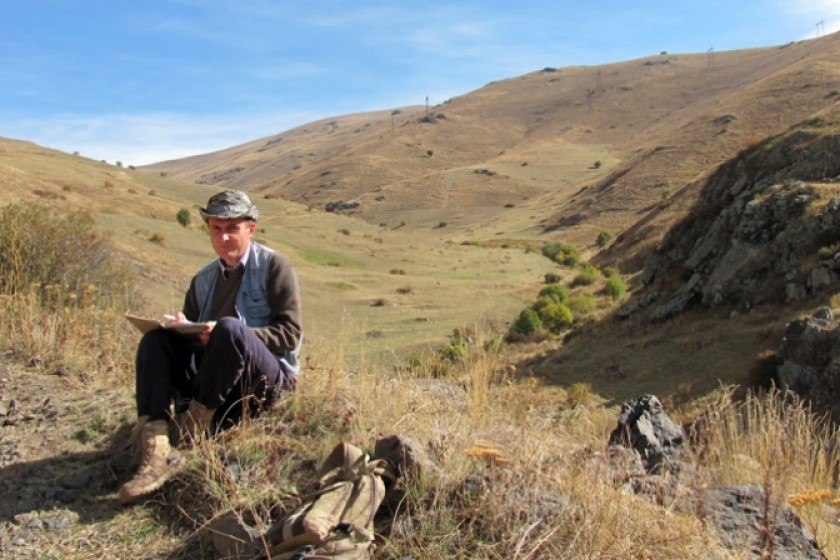
The Sad State of the Sciences in Armenia: “It mirrors the situation of the country as a whole”
Many will perhaps remember Ghazar Galoyan, who heads the Laboratory of Petrology and Isotope Research at Armenia’s Institute of Geological Sciences, for voicing his concerns about the state of science and the plight of scientists during the annual general session of the National Academy of Sciences four years ago.
Armenian President Sargsyan was in attendance, and it’s safe to say he was caught off guard by Galoyan’s candor.
The affair is commonly referred to as the “bicycle story”.
Galoyan said that more must be done to provide decent working and living conditions to keep scientists in the country. Focusing on the issue of wealth disparity, Galoyan pointed out that while some in Armenia own several cars, many have no shoes to wear to work.
Galoyan proposed that scientists be awarded small symbolic prizes, a bicycle, for example, as a reward for scientific pursuits. He described the bicycle as “a civilized means of transport.”
“When our ministers ride to work on a bike, that’s the day when our well-being will commence,” Galoyan told the session attendees.
In response, National Academy of Sciences’ President Radik Martirosyan publicly promised to donate a bicycle to Galoyan. President Sargsyan then chimed in, “Should we give bikes tour ministers or to our respectful colleague here who’s a bit past his youth?”
Galoyan is a geology PhD candidate and a Docteur en sciences de l'Universe (France) has written numerous scientific articles, and is included in the Top 100 Productive Scientists of Armenia list.
He says that he was using the bicycle as a metaphor for a way of life, and that the remark flew over the heads of those attending the session.
“If I addressed my remarks to the minister of the day, who was present at the session, asking him why he was purchasing so many expensive cars for the ministry instead of repairing the roofs or stairwells of schools and kindergartens, it might have resembled a brawl,” says Galoyan. [The minister he refers to is then Minister of Education and Science Armen Ashotyan-MM]
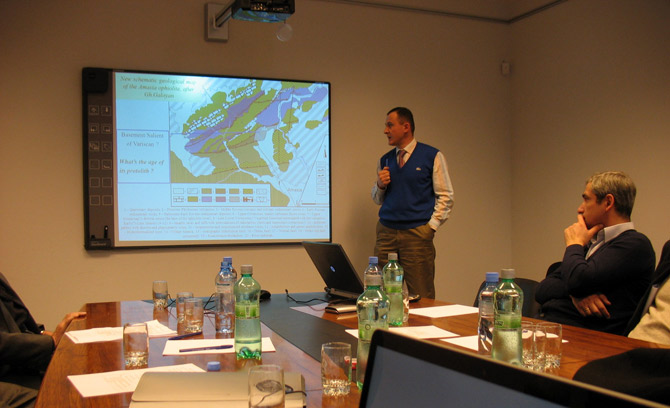
Galoyan entered the sciences in 1996, and recounts that at the time few saw the sciences as a productive field of endeavor in Armenia. Few were optimistic about the prospects of the country.
One of Galoyan’s instructors at Yerevan State University told him that he was destined to pursue a scientific career and that’s why he enrolled at the Institute of Geology after graduating.
“I saw people huddled in their coats working at their desks in the cold. At first, I asked myself ‘what am I doing here?’”
Has the state of science in Armenia improved since 1996?
Let me try to explain by using our institute as an example, since I’m not well acquainted with the others. We used to have very good scientists. Today, in their place, we have young researchers. Some think this is a good thing. Some do not. As for wages, they’ve relatively risen. When I first got accepted, I was making 6,000 drams monthly. After taxes, I pocketed 4,600. Today, my salary is 90,000 drams.
But you stayed in Armenia and worked at this pay scale.
When you love your work and feel you have something to contribute, when you’re able to make discoveries or add to the work done by others before you, then you continue to work.
At the time, Armenian-French contacts had been made, and I had the opportunity to engage in modern scientific pursuits and to employ cutting edge technologies. After all that, it’s hard to do an about-face and say one is leaving the sciences.
These base wages don’t satisfy anyone today. But, there are those who get such wages as a form of assistance, since they no longer are fully engaged in scientific pursuits. Sure, our wages have increased in the last 22 years but we’re still only talking about $200 a month. Optimism is in scare supply. There’s just a small bit of hope that we’ll find financing for specific programs.
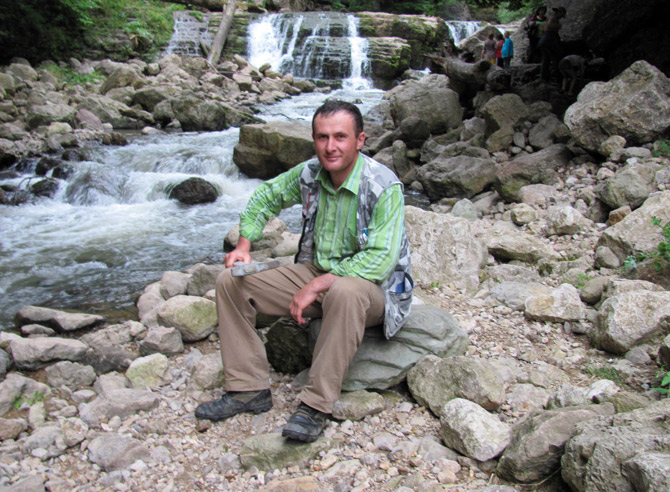
I really don’t want to see us totally dependent on grants, because you never find a grant that will allow you to pursue your best loved scientific pursuit. Excuse me for saying so, but grants are awarded, overall, for work of an amateur nature that contributes little to serious science.
While I don’t want to underestimate the work carried out by our scientific community, but when the resources provided are scarce, it’s natural that all issues can’t be tackled, whether worthy or not.
In brief, how would you describe the state of science in Armenia?
The state of science and the plight of scientists mirrors the situation of the country.
Some have concealed their heads and feed off the crumbs, indifferent to the current state of science or its future. Others beat their heads to salvage those crumbs from disappearing.
For many young people, the sciences have become a field where they can make a name for themselves. Later, if the possibility exists, they go abroad on academic junkets.
Most never return after seeing what the sciences offer overseas. They realize that the prospects for advancement in Armenia are very restricted.
Recently, the Armenian government has voiced the expectation that scientists make discoveries with practical applications. The prime minister has even voiced some resentment on the matter in his statements.
The government probably doesn’t fully understand the concepts of science and scientists. They assume that a scientist can immediately come up with ideas that can easily be applied to real world use. That’s not the way it works.
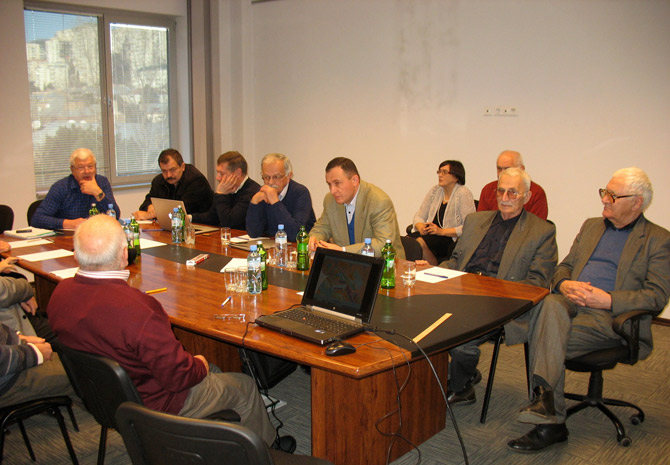
Those countries that I’ve visited are engaged in fundamental science, and their governments aren’t the least bit concerned. They even assist Armenia and other countries who don’t have the resources or equipment to carry out such research.
Globally, practical applications of fundamental science are few in relative terms. Those engaged in pure science don’t even think about the possible practical applications it may engender. Scientists engaged in fundamental research always compare their findings to those made by their peers, seeing whether they’ve added to the overall pool of knowledge.
Scientists always voice concern about the state of science. Is the government listening?
They hear these concerns but pay them little heed. The government’s argument is that all sectors need funding – the army, schools, etc.
Are you’re saying that the government doesn’t regard the sciences as a priority?
Yes, science isn’t a priority.
While government policy states that the sciences are a priority sector, and prime ministers over the past 10-15 years have talked about the sciences as a serving as a knowledge base for the economy, no steps have been taken to use this base.
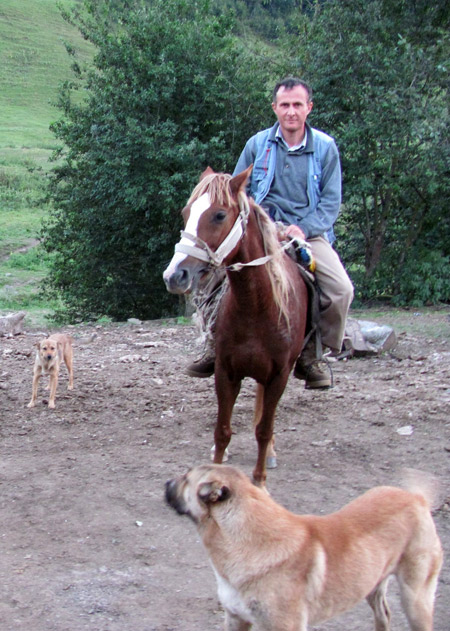
Over the past month, I’ve corresponded with three universities in Italy, France and Switzerland. Even if we’re not paid a salary, we have the obligation to maintain these contacts. Otherwise, they will overlook us and our opinions when conducting research in Armenia.
You’ve had the chance to work overseas. So, what keeps you in Armenia?
First, it’s my extended family.
Armenia is a good country and I love my homeland. Yes, I could have stayed in France in 2008. I received an offer to serve as an assistant professor at Nice University.
Today, we take pride in the footballer Henrikh Mkhitaryan. But he’s not a footballer in Armenia. We have some great scientists, but they don’t work in Armenia. I would like for these scientists to represent Armenia, and for the name of the National Academy of Sciences of Armenia to appear on their publications.
What changes would you like to see in the sciences in Armenia?
I’d like to see a change in the government’s approach to science and scientists.
Turn on the TV in Armenia and all you see is fluff entertainment and mindless soap operas where people are shot and killed. I’m amazed we have no science programs.
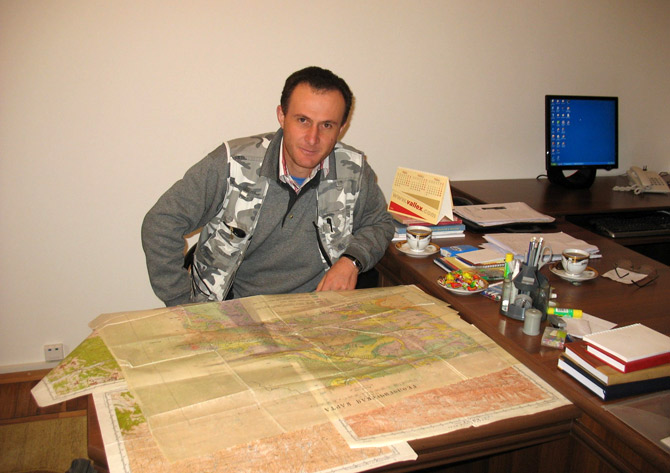
We also should have understandable lectures on science in our public schools, for the higher-grade students. Students must be introduced to the sciences; otherwise how will they know whether they might want to pursue a science education. The ministry should take immediate steps in this direction.
How will the sciences fare in Armenia in the future?
It all depends on the new generation. Twenty years ago, if we expected to see the promise of a flourishing Armenia in five or six years, a country with a strong economic base and people pursuing the sciences, I don’t see such prospects today.
Because of military service, our boys remain outside the field of science. There are more girls entering the field.
It’s all centered around money. That’s the main thing. If one sees no prospect of making a decent living, no young people will be willing to spend their most productive years in the halls of science, depriving themselves of life’s beautiful and beneficial possibilities.
Are there any signs of optimism?
Our country is the source of optimism. It’s a very lovely country, and the hope that one day we’ll come to our senses and build the Armenia of our dreams, on the land we now have, or on a larger piece of land, remains.
This hope is our only bright light. That one day we’ll become a smart people, linked arm in arm, and that we’ll no longer think of moving to Russia or another country, or of secreting our boys away somewhere from military service.
 Videos
Videos Photos
Photos
Comments (1)
Write a comment